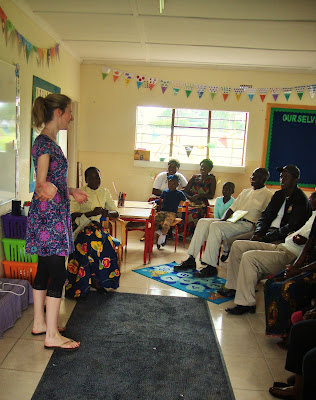 |
| Many Zambians rely on small-scale subsistence farming |
Many people in Zambia are very resourceful. It is quite impressive to see how many sacks of charcoal can actually be transported on one bicycle! Some people in the villages make and sell fritters, or collect grass to sell to be used in building roofs, but it’s quite a challenge for anyone to start a business up without any capital behind them. In addition, many of the guardians in Arise are uneducated and so they don’t have many of the necessary skills to run a successful business.
 |
| Transporting charcoal |
For some years now, a UK-based Christian charity called three:eighteen have supported our work at Kapumpe and Arise. They have helped sponsor some of the school children and teachers and fund an annual youth camp. Three:eighteen specialise in microfinance projects. They provide microloans and business training, to enable groups of people in impoverished communities to start small businesses. They first started the microloan project in Chinsali in the Muchinga Province of Zambia in 2012. Since then, three:eighteen have supported over 40 groups in starting small businesses. They also currently employ two Zambian trainers to run the work on the ground.
 |
| three:eighteen website |
During the last year or so, we as the Arise team have been discussing ideas with three:eighteen and planning how we might start such a project in Kaniki. It was launched this January. There has been a lot of interest from our Arise guardians and all six of the people we approached to be part of the first group, eagerly accepted the opportunity.
One of three:eighteen’s trainers kindly came from Chinsali to spend some time training up a local Zambian who runs his own business here, who would then become the trainer in Kaniki. Together they spent two days with our first group of Arise guardians delivering training and supporting them to write a business plan.
 |
| three:eighteen microloan trainers |
Two days later the plan was complete and ready to be submitted to three:eighteen for approval. The group have opted for a business selling chickens. We were really impressed with how the group worked together. We had been concerned about some of their levels of illiteracy, but the benefit of working as a group means that they can all contribute different skills and work together to support each other. They aptly named their group, ‘Twikatene’ which means ‘Let’s hold hands together’.
 |
| Business training in action |
We are looking forward to seeing how the Twikatene group gets on and for how the microfinance project might grow to equip other groups in the future. Please pray for this group - that they would work hard and continue to work well together, overcome obstacles and for the business to grow.
 |
| Twikatene Group |
You can find out more about microloans and small businesses in Zambia on the three:eighteen website website. If you are interested in supporting some of the costs associated with training more locals, follow the link below and select the 'microloan' option:
Thank you for your ongoing interest and support.




















